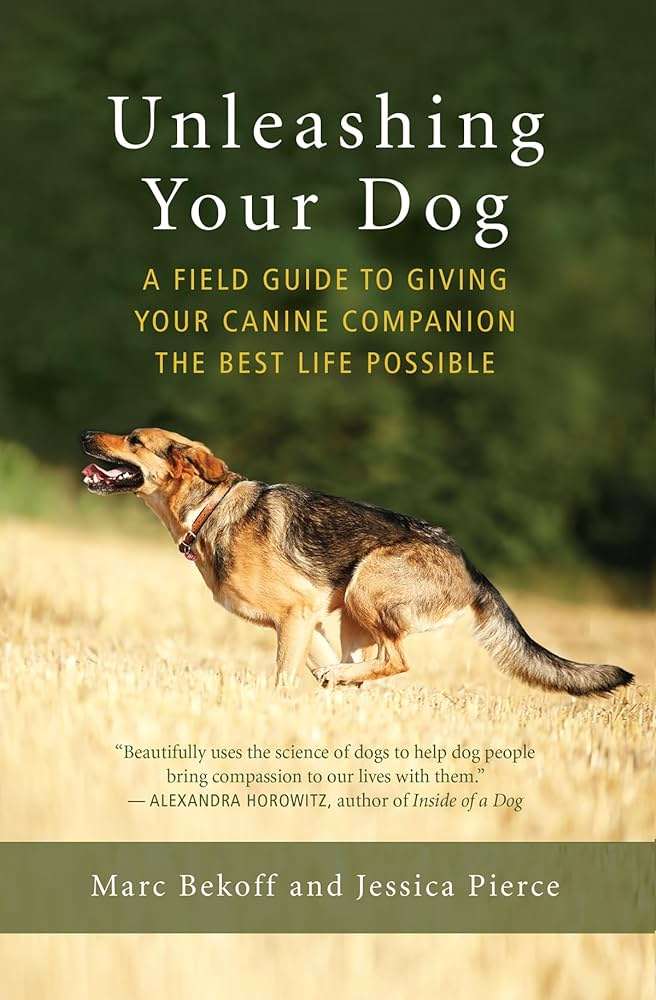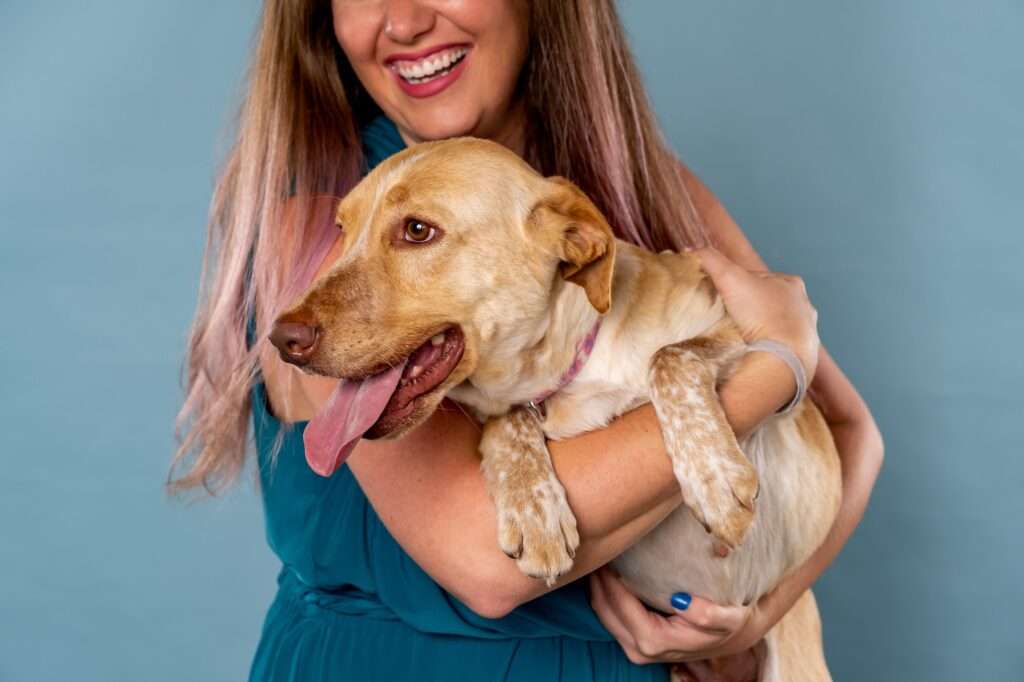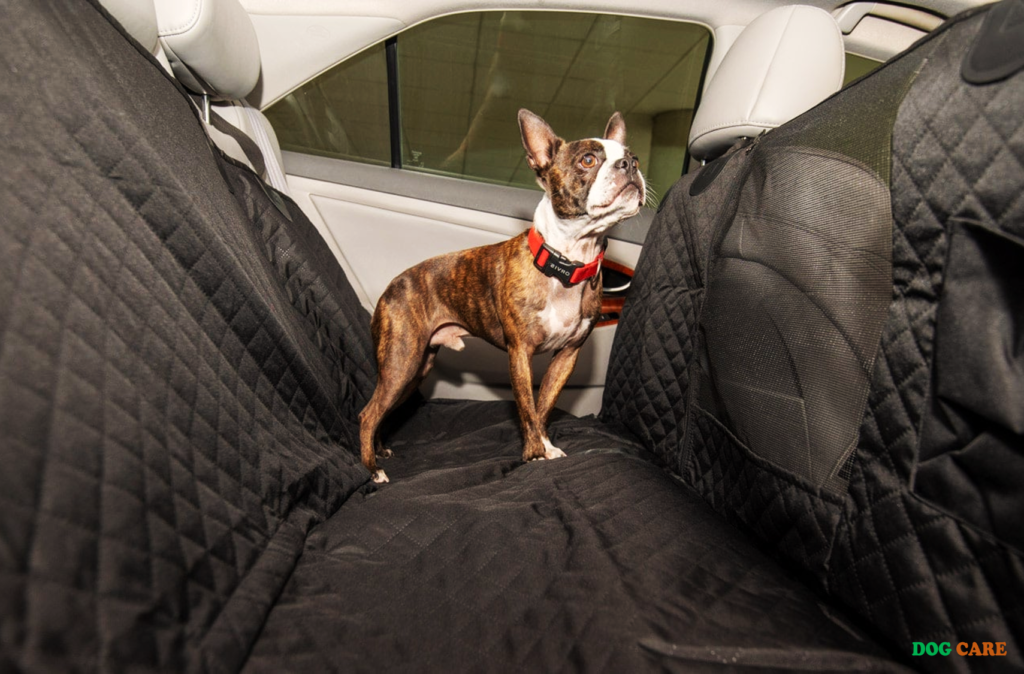Senior Dog Panting At Night And Drinking Lots Of Water may be experiencing underlying health issues or age-related changes that require veterinary attention. It is important to monitor any changes in your senior dog’s behavior and consult a veterinarian for a proper diagnosis and treatment plan.
Introduction : As dogs age, they tend to develop various health issues that require careful monitoring and medical attention. One common symptom that senior dogs may exhibit is excessive panting at night and increased water consumption. While panting is normal for dogs to regulate their body temperature, excessive panting, particularly during nighttime, could be an indication of an underlying health problem.
Additionally, increased water intake can also be a cause for concern, as it may be a sign of an underlying medical condition. For senior dog owners, understanding the potential causes of these symptoms and seeking veterinary advice is crucial in ensuring the well-being and comfort of their furry companions. We will explore the possible reasons why senior dogs pant at night and drink lots of water, as well as the actions that can be taken to address these issues.
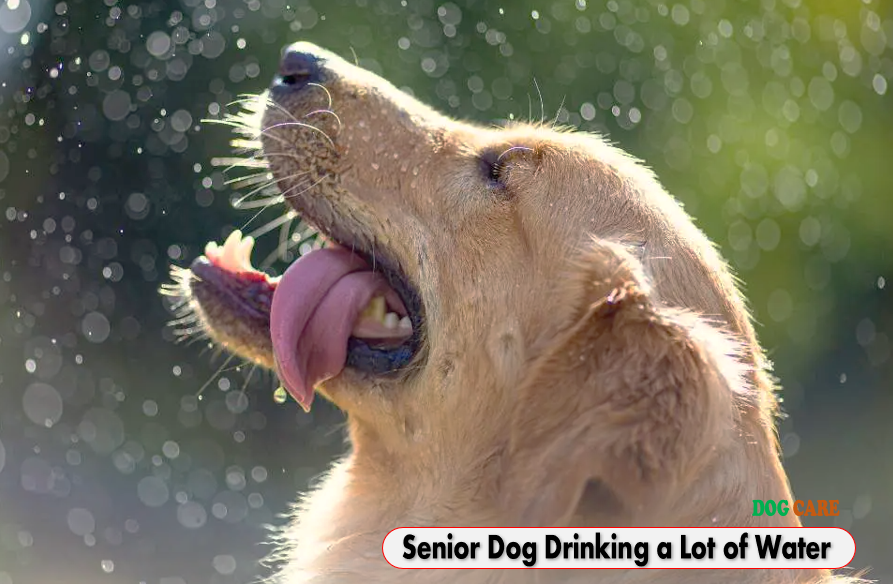
Understanding Senior Dogs
Senior dogs may pant at night and drink lots of water, indicating potential health issues. Understanding these signs can help owners provide appropriate care and support for their aging furry companions.
Senior dogs are beloved members of our families who have shared many years of joy with us. As our furry friends age, certain changes begin to occur in their bodies and behaviors. It is important for pet owners to be aware of these changes and understand how to provide the best care for their senior dogs. In this blog post, we will explore the factors that can affect senior dogs and the common health issues they may face.
Factors That Affect Senior Dogs
- Breeds: Different dog breeds have varying lifespans and tendencies towards certain health issues. Larger breeds tend to have shorter lifespans compared to smaller breeds. It is important to be aware of breed-specific conditions that may arise as your dog gets older.
- Age: Aging affects dogs just like it affects humans. While the age at which a dog is considered senior can vary depending on size and breed, dogs generally start showing signs of aging between 7 and 10 years.
- Exercise: Regular exercise is crucial for a dog’s overall health, but as they age, they may require less intense activities. Adjusting their exercise routine according to their changing needs can help prevent injuries and maintain their physical and mental well-being.
- Dietary Needs: Senior dogs often require specific diets to accommodate their changing nutritional requirements. Consult with your veterinarian to ensure your senior dog is receiving the appropriate nutrients to support their aging body.
Common Health Issues In Senior Dogs
As our dogs grow older, they become more susceptible to certain health issues. It is essential to monitor and address any changes in their behavior or physical condition. Some common health issues that senior dogs may experience include:
- Arthritis: Joint problems and arthritis are common in senior dogs and can cause pain, stiffness, and difficulty in moving. Providing joint supplements and implementing gentle exercise can help manage these conditions.
- Dental Disease: Dental issues such as gum disease, tooth loss, and oral infections are more prevalent in older dogs. Regular dental care, including teeth cleaning and providing appropriate chew toys, can help prevent dental disease.
- Heart Disease: Older dogs have a higher risk of developing heart conditions. Symptoms may include coughing, difficulty breathing, and lethargy. Regular veterinary check-ups can help detect and manage these conditions early on.
- Kidney Disease: Kidney function can decline as dogs age, leading to issues like increased thirst, frequent urination, and loss of appetite. Monitoring water intake and consulting with a veterinarian is essential to manage kidney disease.
Understanding the factors that can affect senior dogs and being aware of common health issues they may face allows us to provide them with the best care possible as they enter their golden years. Regular veterinary check-ups and open communication with your veterinarian are crucial in ensuring a long and healthy life for your beloved senior dog.
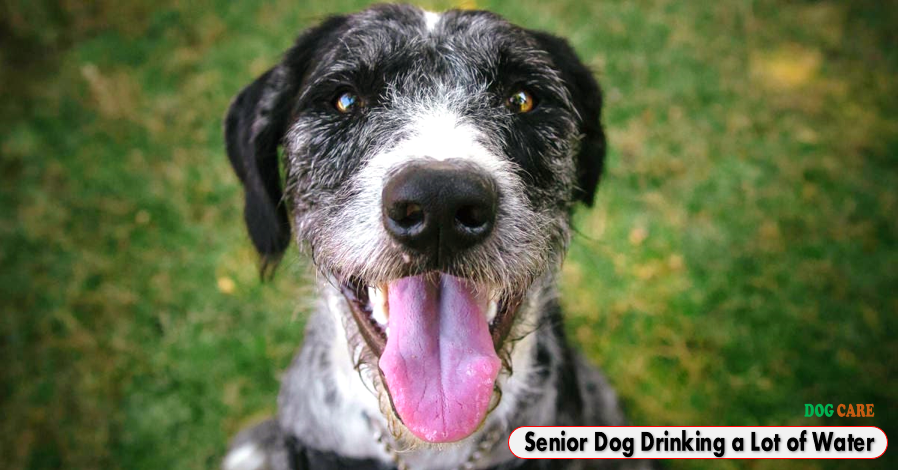
The Link Between Panting And Drinking Lots Of Water
The Link Between Panting and Drinking Lots of Water
As dogs age, they may start exhibiting new behaviors and experiencing changes in their health. One common issue that senior dogs may face is panting at night and drinking an excessive amount of water. While these symptoms may seem unrelated, there is, in fact, a strong link between panting and drinking lots of water in senior dogs.
Why Senior Dogs Pant At Night
There can be several reasons why your senior dog may pant excessively at night. It’s vital to understand these causes to provide appropriate care and address any potential health concerns. Here are some possible explanations:
- Pain and discomfort: Senior dogs may experience joint pain due to arthritis or other age-related conditions, leading to panting at night.
- Separation anxiety: Senior dogs can develop separation anxiety as they age, causing panting and restlessness when left alone at night.
- Respiratory problems: Certain respiratory conditions, such as chronic bronchitis or heart disease, can cause panting, especially during sleep.
Excessive Thirst In Senior Dogs
While it’s normal for dogs to drink water throughout the day, excessive thirst in senior dogs can be a cause for concern. If your senior dog is constantly seeking out water or consuming larger amounts than usual, it’s essential to investigate further. Here are some potential reasons for excessive thirst:
- Kidney disease: Impaired kidney function is common in senior dogs and can lead to increased thirst and urination.
- Diabetes: Just like in humans, senior dogs may develop diabetes, which can cause increased water intake.
- Medications or medical conditions: Certain medications or underlying health issues can also contribute to excessive thirst in senior dogs.
It’s crucial to monitor your senior dog’s water intake and consult with your veterinarian if you notice any significant changes. They can help determine the underlying cause and recommend appropriate treatment or lifestyle adjustments.
Identifying The Underlying Causes
Possible Medical Conditions
Senior dogs panting at night and drinking excessive amounts of water can be indicators of underlying medical conditions that require attention. Here are some possible medical conditions that could be causing these behaviors:
- 1. Kidney Disease: Dogs with kidney disease often drink more water and experience increased panting as their kidneys struggle to filter waste products from the blood. This condition requires immediate veterinary intervention.
- 2. Cushing’s Disease: Cushing’s disease, also known as hyperadrenocorticism, occurs when the adrenal glands produce an excess of cortisol hormone. Symptoms include excessive thirst, excessive urination, and panting at night.
- 3. Diabetes: Diabetes can cause increased water consumption due to excessive glucose in the bloodstream, leading to excessive urination. Panting at night can also be a result of the body’s attempt to regulate blood sugar levels.
- 4. Congestive Heart Failure: Dogs with congestive heart failure often experience fluid retention, which can lead to increased panting as they struggle to breathe. Increased water intake may be a response to dehydration caused by poor circulation.
- 5. Hypothyroidism: Hypothyroidism, characterized by low thyroid hormone levels, can cause increased thirst and panting. It is commonly seen in older dogs and can be managed with appropriate medical treatment.
Environmental Factors
In addition to medical conditions, certain environmental factors can contribute to senior dogs panting at night and drinking excessive amounts of water. Understanding these factors can help you address the issue more effectively:
- 1. Warm Temperature: If your home is too warm at night, your senior dog may be panting in an attempt to cool down. Providing a cooler sleeping environment and ensuring proper ventilation can alleviate this issue.
- 2. Anxiety or Stress: Senior dogs may experience anxiety or stress that can lead to panting at night. This can be caused by changes in the household, separation anxiety, or other environmental factors. Calming techniques, behavioral training, and a consistent routine can help manage this condition.
- 3. Medications: Some medications can cause increased thirst and panting as side effects. If you recently started a new medication, consult your veterinarian to determine if it could be contributing to the symptoms.
- 4. Increased Physical Activity: A lack of exercise during the day may result in excess energy at night, leading to panting. Increasing your senior dog’s daily exercise can help them expend energy and sleep more comfortably.
Identifying the underlying causes of senior dog panting at night and drinking lots of water is crucial for their overall well-being. By addressing possible medical conditions and considering environmental factors, you can work towards finding the appropriate solutions to alleviate these symptoms and ensure your senior dog’s comfort and health.
Managing Panting And Excessive Thirst
If your senior dog is experiencing panting at night and drinking lots of water, it’s essential to take proactive steps to manage these symptoms. By addressing the underlying causes and making necessary adjustments, you can help improve your beloved pet’s comfort and overall well-being. In this section, we will explore two key approaches to managing panting and excessive thirst: veterinary consultation and diagnosis, as well as dietary adjustments and hydration.
Veterinary Consultation And Diagnosis
If your senior dog is exhibiting abnormal panting and increased thirst, it’s crucial to consult with a veterinarian. They can provide a comprehensive assessment of your dog’s health and identify any potential underlying conditions that may be causing these symptoms. Some common medical issues that could contribute to excessive panting and thirst in older dogs include:
- Endocrine disorders such as Cushing’s disease or diabetes
- Heart or lung conditions like congestive heart failure or chronic obstructive pulmonary disease (COPD)
- Kidney problems including kidney disease or urinary tract infections
- Hypertension (high blood pressure)
- Hyperthyroidism
Once a diagnosis is made, your veterinarian will recommend the appropriate treatment plan. This may include medication, lifestyle modifications, or further diagnostic tests if necessary. By working closely with your veterinarian, you can ensure the best care for your senior dog.
Dietary Adjustments And Hydration
Proper nutrition plays a crucial role in managing panting and excessive thirst in senior dogs. Your veterinarian may recommend specific dietary adjustments based on your dog’s condition and overall health. These may include:
- Switching to a low-sodium or prescription diet to help manage heart or kidney conditions
- Providing a balanced diet that supports overall health and helps maintain a healthy weight
- Incorporating supplements such as omega-3 fatty acids to support joint health and reduce inflammation
In addition to dietary changes, ensuring your senior dog stays adequately hydrated is vital. Provide fresh, clean water at all times and consider using a pet water fountain to encourage regular drinking. Monitoring your dog’s water intake can help you identify any significant changes and provide valuable information to your veterinarian.
Improving Your Senior Dog’s Quality Of Life
Help your senior dog have a better quality of life by addressing common issues like excessive panting at night and increased water intake. Learn how to improve their well-being and provide the care they need for a happier and healthier life.
Exercise And Mental Stimulation
Regular exercise and engaging activities are key to improving your senior dog’s quality of life. By incorporating these into their routine, you can help them stay active, maintain a healthy weight, and stimulate their mind.
Dogs, especially seniors, benefit tremendously from physical exercise. It helps strengthen their muscles, supports their joint health, and improves overall cardiovascular function. Taking your dog for daily walks or playtime can provide the exercise they need.
- Vary their exercise routine with activities like swimming or gentle hiking.
- Keep play sessions enjoyable, incorporating their favorite toys or interactive puzzles to engage their mind.
- Consider low-impact exercises for seniors, such as hydrotherapy or short, regular bursts of activity throughout the day.
Comfort And Sleep Environment
Creating a comfortable and soothing sleep environment is crucial for your senior dog’s quality of life. Providing them with a cozy space to rest can alleviate any discomfort they may experience and promote better sleep.
Ensure their bed is supportive and cozy by choosing a mattress that offers ample cushioning. Placing the bed in a quiet area, away from loud noises and high-traffic areas, can help them relax and feel safe.
- Consider orthopedic beds that offer extra support for aging joints and help relieve pressure points.
- Use soft and warm blankets to keep them comfortable, especially during colder nights.
- Keep the sleeping area clean, free from allergens, and well-ventilated.
Additionally, reducing any potential sources of discomfort, such as drafts or excessive room temperature fluctuations, can contribute to a more peaceful sleep environment for your senior dog.
Incorporating these improvements into your senior dog’s life can help reduce panting at night and excessive water drinking. Remember, their comfort and well-being are vital, so make adjustments that suit their unique needs.
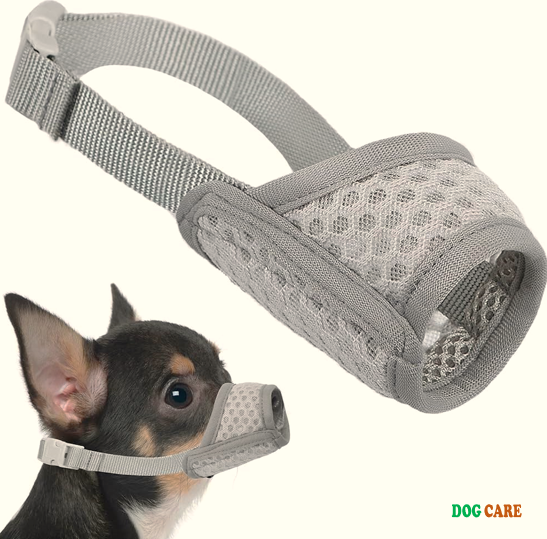
Frequently Asked Questions Of Senior Dog Panting At Night And Drinking Lots Of Water
Why Is My Senior Dog Panting At Night?
Panting at night in senior dogs could be due to anxiety, pain, or a respiratory problem. Consult your vet for a proper diagnosis and treatment.
Is It Normal For Senior Dogs To Drink Lots Of Water?
While increased water intake can be a sign of aging, excessive thirst could indicate an underlying health issue. It’s best to seek veterinary advice to rule out any problems.
What Are The Common Health Issues Associated With Senior Dogs And Panting At Night?
Senior dogs may experience panting at night due to diseases like Cushing’s syndrome, heart disease, or respiratory infections. Consult your vet for a proper diagnosis.
How Can I Help My Senior Dog With Excessive Panting And Thirst?
Provide a quiet and comfortable sleeping area, ensure proper hydration, and schedule regular vet check-ups to monitor your senior dog’s health and address any concerns.
Can I Manage My Senior Dog’s Excessive Panting And Thirst With Diet Changes?
While a well-balanced diet is crucial for a senior dog’s overall health, diet changes alone may not be sufficient to manage excessive panting and thirst. Consult your vet for tailored advice.
Conclusion
If you have a senior dog panting at night and drinking lots of water, it could indicate underlying health issues. It is important to consult your veterinarian for a proper diagnosis and treatment plan. By identifying and addressing the root cause, you can help improve your dog’s comfort and overall well-being.
Remember, understanding and addressing your senior dog’s health concerns is essential for their quality of life.
